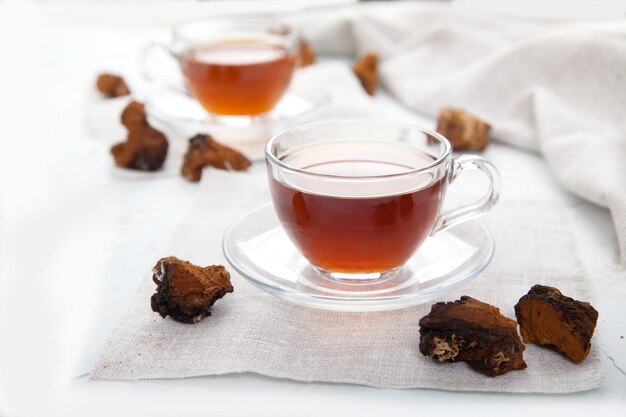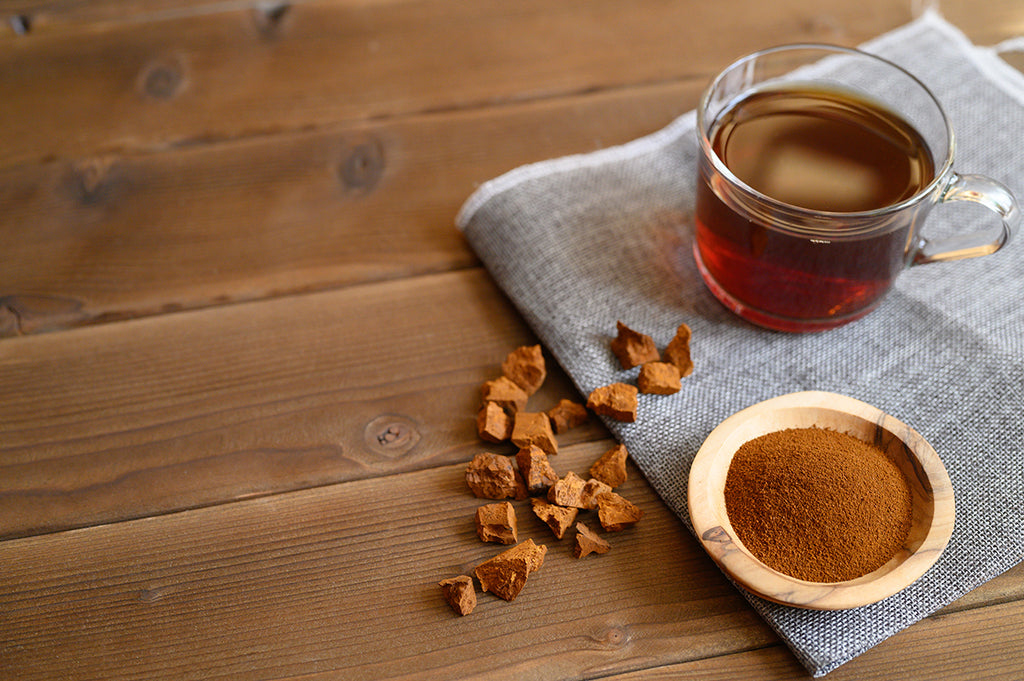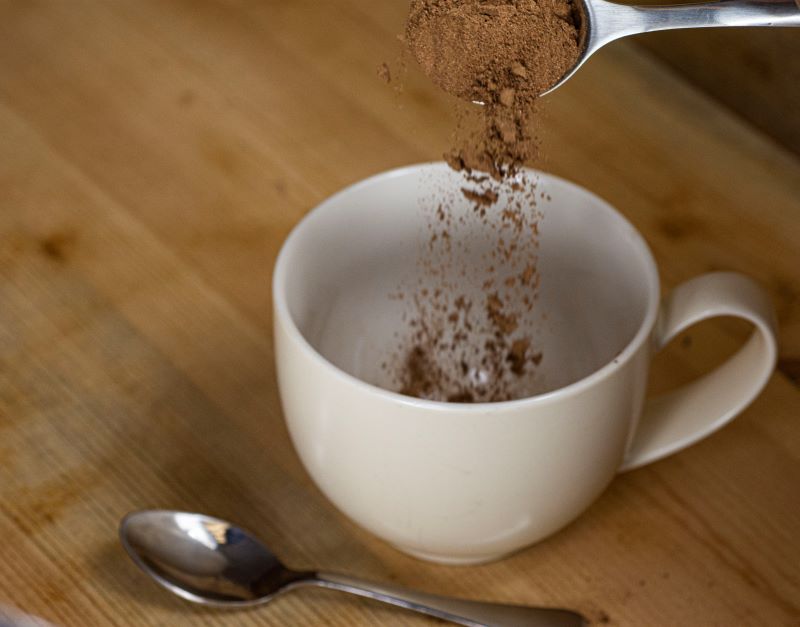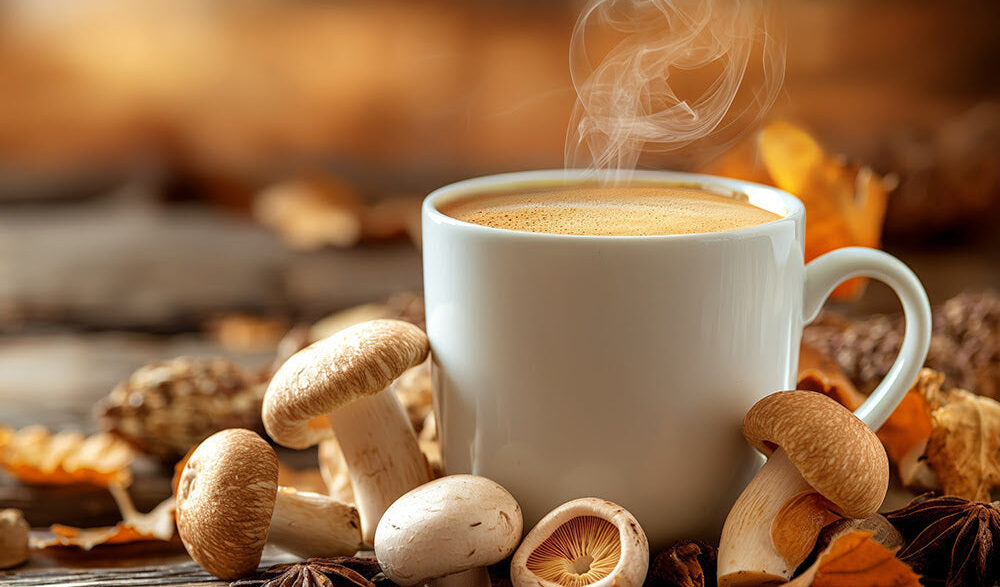In response to the growing popularity of functional mushrooms, people are incorporating more fungi into their daily routines, such as by enjoying various types of mushroom tea.
One of the most up-to-date and oldest ways to experience mushrooms in Indonesia is through drinking mushroom tea, which offers a spread of health blessings. In this article we provide information of mushroom tea benefits and preparation methods.
What’s Mushroom Tea?
The system of steeping mushrooms or mushroom powder in water effects in a mushroom tea. It may be made from diverse mushrooms and in unique techniques.
Incorporating dried mushrooms in warm water or dissolving a mushroom powder in water, or a few different shapes of tea is the approach used to make mushroom tea.
The use of mushrooms in traditional medicines is widespread, as they are employed for cancer treatment, mental health promotion, stress and anxiety relief, and digestion support.
Some types of mushrooms are considered adaptogenic and may help with various forms of stress relief. Currently, some mushroom powders are added to herbal tea mixtures and even in tea bags.
Mushroom Tea Has Many Health Benefits
Mushrooms have gained popularity in tea due to its endorsements by actors including Gwyneth Paltrow. There is more than a stir fry or salad to mushrooms.
Although mushrooms may seem like a newer ingredient, mushrooms have been a source of medicinal value for many centuries in eastern medicine. Often, powdered extracts from varieties like chaga, also known as lion’s mane or reishi are added to the tea or sometimes coffee to make mushroom tea.
The presence of fresh mushrooms in sunlight results in naturally high levels of antioxidants, fiber, and vitamin D, which aid in immunity, bone health, elasticity, thickness, color, strength, vitality, nourishment, or texture. While tea contains fiber, it is primarily rich in antioxidants and anti-inflammatory compounds.
Research indicates that the consumption of mushrooms may decrease the likelihood of depression.Ttheir phytochemicals may possess protective, anti-cancer properties.
Despite limited recent research on the effects of adaptogenic mushrooms, the historical use and early evidence of the health benefits of these mushrooms indicate they may provide health benefits. Some benefits of mushroom tea are
Boosts Immunity
Species such as Reishi, Chaga, Lion’s Mane, Cordyceps, Turkey Tail Tremella, and Shiitake mushroom teas are rich in adaptogens (beta supplements) and beta-glucans. They help regulate the immune system and aid stress adaptation.
The presence of polysaccharides in Turkey Tail can modulate immune response. It then leads to quicker healing and potential therapeutic synergy in cancer patients receiving chemotherapy.
Additionally, mushrooms contain beta-glucans that serve as prebiotic supplements and beneficial gut bacteria like Lactobacillus, while also stimulating T cells and natural killer cells, which are essential for immune defense and tumor prevention.

High Antioxidant Levels
The functional mushroom teas are full of antioxidants, phenolic compounds, and free radical neutralizing molecules that can contribute to long-term health.
A single cup of rich chaga tea would have the same amount of antioxidant levels as 30 pounds of carrots! No wonder it is considered such an incredible antioxidant. The antioxidant properties also help provide anti-inflammatory effects and protection against DNA and mitochondrial damage.
Supports Brain Function
Research shows Lion’s Mane Tea can increase neuron development, memory performance, and focus with hericenones and erinacines that can help with nerve growth factor (NGF).
In a human study after 49 weeks of intake, lion’s mane extract was shown to markedly raise cognitive test results in elderly patients compared to just placebo. It has been linked in preclinical studies with anxiety and a protective effect against dementia. In addition, animal studies have suggested that by creating a barrier, Lion’s Mane can prevent ulcers.

Supports Rest And Sleep
For centuries, traditional medicine has used Reishi as a powerful calming agent. It helps to relax, improve sleep, and in some cases, address seasonal allergies. Making the connection between the polysaccharides with immunological support and stress reduction makes it a mushroom of immortality with traditions of promoting longevity.
Boosts Stamina And Energy
Cordyceps affords an intoxicating, non-caffeine-free stimulation without any caffeine. They areacknowledged for its potential to reinforce strength, oxygen uptake, and bodily performance.
Its beta-glucans contribute to oxygen delivery at the cellular level, which could potentially improve both athletic performance and respiratory function. Additionally, Cordyceps can play a role in supporting healthy blood sugar levels by mimicking insulin action.-Supports digestive health.
Beta-glucan fiber is available in whole mushrooms or powdered mushrooms included in mushroom teas. It acts as a natural prebiotic and supports digestion while maintaining a healthy gut flora. Beta-glucans can inhibit absorption of intestinal cholesterol, which is good for your heart.
Regulate Blood Sugar Level
The sensitivity of insulin and metabolic balance in Maitake and Cordycepsare factors in controlling blood sugar levels. Despite the lack of robust data on humans, early research indicates promising potential for managing metabolic health.
Body detoxification
Chaga tea’s beta-glucans, polysaccharides, antioxidant compounds and terpenoids help to increase our own antioxidants, and aid in the detoxification of the body.
Supports Heart Health
Several medicinal mushrooms, including Shiitake, Turkey Tail, and Reishi tea contain compounds which lower cholesterol, reduce inflammation, and improve cardiovascular health.is renowned for its heart-protective properties, whereas Reishi contains triterpenesfor instance in maintaining wholesome blood strain and lipid ranges .
The Perfect Way To Prepare Mushroom Tea
- Any slices, chunks, or powders made from dried mushrooms. Reishi, chaga, lion’s mane, turkey tail are among the examples.
- For each 2 cups (or 500 ml) of water, use around five to ten grams of dried mushrooms (or 1 to two teaspoons of powder).
- Boil water, then mushrooms and simmer for anything from 45 minutes to 2 hours (or longer for hard mushrooms like chaga and reishi).
- Strain the mushroom pieces and sediment off using a strainer or cheese cloth, reject and keep liquid.
- Quick method (powder) – If you use powder mushrooms or instant extract, just mix 1 teaspoon powder with a cup of hot water, stir, let steep for 8–15 minutes and consume.
- Give a flavor option. Taste allows you to add honey, lemon, ginger, cinnamon and/or plant based milk.
- Store, You can keep leftover tea in the refrigerator for as much as one week.
- Optional Double Extraction – If you like the stronger effects, simmer the mushrooms in water, then take what remains and soak it in alcohol (vodka/grain alcohol) and then combine both extracts.
- Safety – Only use mushrooms from a safe source, only use a little bit at a time to see what the effects are- start with 1 cup a day. If you have concerns about your personal health or medication.

Conclusion
Mushroom tea is not only a trend drink it is a natural wellness drink. Mushroom tea benefits immunity, cognitive function, energy, sleep, and general health.
Whether you want to boost your stamina, or simply maintain long-term wellness, mushroom tea is a great option.

















